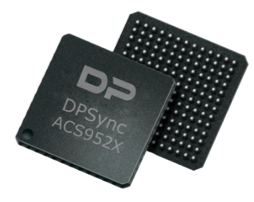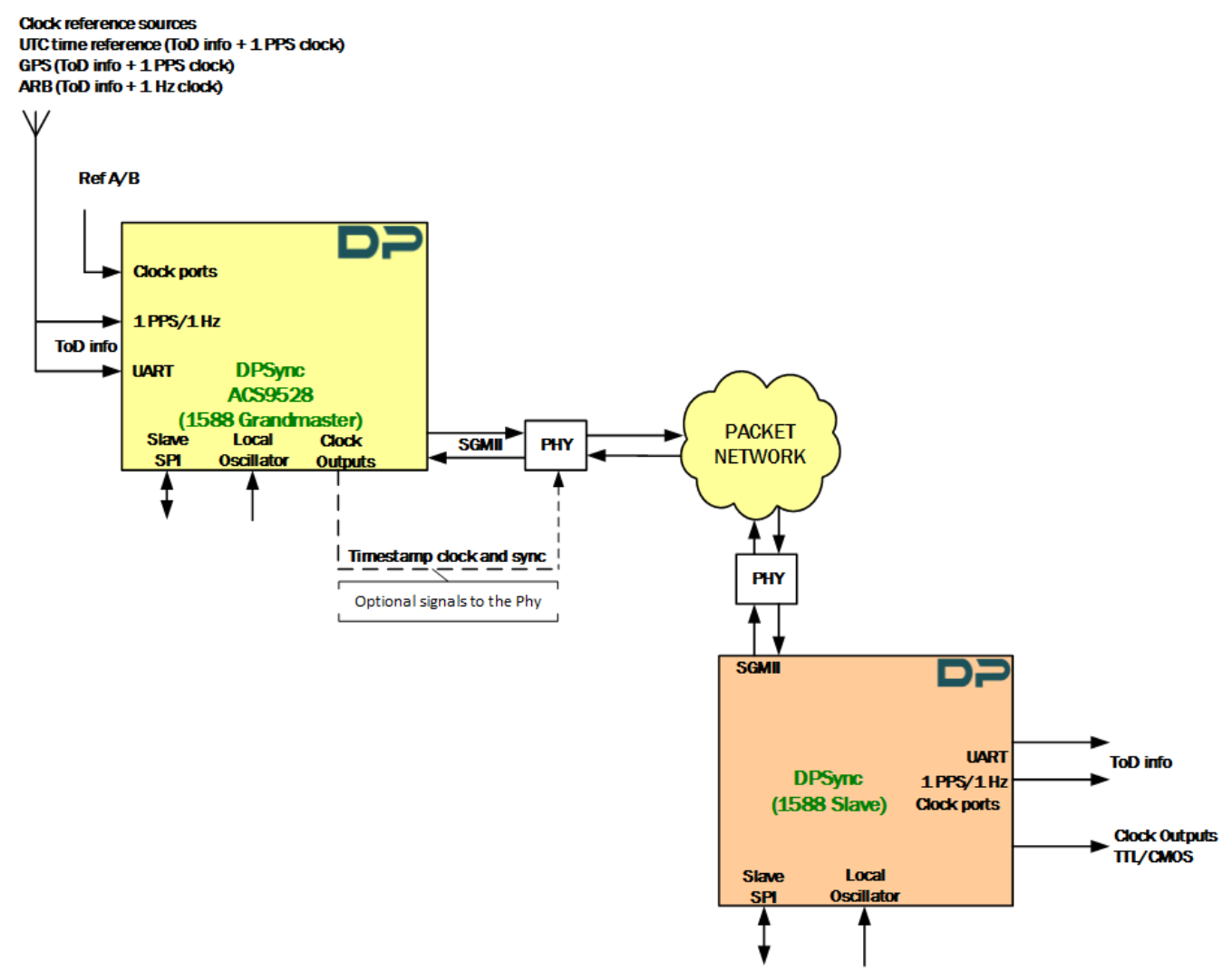
 ACS9528
ACS9528

The ACS9528 features two separate PTP master blocks, driven from a common timebase, and two independent SGMII Ethernet ports. Each master block can be associated with either SGMII port for maximum flexibility. The master blocks can be individually configured to support different operating parameters of PTP, such as layer 2 (Ethernet) or layer 3 (UDP/IP), different PTP domains and one or two-step operation. Each SGMII port has individually programmable Ethernet MAC and IP addresses. By associating both master blocks to a single SGMII port, both layer 2 and layer 3 master functionality can be provided on one port.
Complete dual IEEE1588-2008 master function in a single device
Ideal for applications such as:
PTP grandmaster
xPON ONU
Wireless backhaul aggregator
Suitable for delivery of time-of-day or frequency
1PPS and NMEA serial port for interfacing to common GPS receivers
Dual frequency inputs up to 160 MHz for received Synchronous Ethernet clock
Can be used as reference for frequency-only delivery or to provide holdover stability
Layer 2 or layer 3 operation
Simultaneous multicast and unicast operation
One or two-step PTP Sync messages
Operates at up to 128 packets per second
Supports up to 1024 slave devices
1024 at 8 pkts/sec
512 at 16 pkts/sec
256 at 8pkts/sec
Acceptable slave table (Restricts operation to known slaves)
Support for external timestamping
SPI interface for control
Dual SGMII Ethernet interfaces
DAPU-provided Windows GUI ( Can ease initial bring-up effort and reduce time-to-market ).
Configurable plug-and-play option allows autonomous operation from reset
Works with 10, 12.8 or 20 MHz local oscillator
Master I2C port to control companion ACS1790 (For Synchronous Ethernet clocking)
324 ball, 19 x 19 mm, 1 mm pitch LBGA
3.3V and 1.2V power supplies
Power consumption less than 0.5W typical
Operating temperature – -40℃ to +85℃
Fully RoHS (6 of 6) and WEEE compliant
Application
